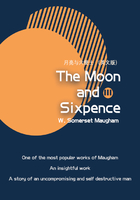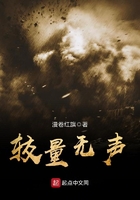About the time that Janet and I were approaching Trayne, Lieutenant Alan Hughes was standing side by side with Leading-Fireman Norris on the Oppley road. They were watching while a fireman grappled at the fallen ambulanceman with a long ceiling-hook. Presently the hook lodged, and began to haul him in. The body was dragged across a yard and a half of tarmac-and then sat up abruptly, and swore.
It seemed to Alan that he had never heard more beautiful language. Already, the acute anxiety with which he had arrived on the scene had been allayed by the discovery that the victims of whatever-it-was were quietly, but quite definitely, breathing as they lay there. Now it was established that one, at least, of them showed no visible ill effects of quite ninety minutes' experience of it.
'Good,' Alan said. 'If he's all right, it looks as if the rest may be-though it doesn't get us much nearer to knowing what it is.'
The next to be hooked and pulled out was the postman. He had been there somewhat longer than the ambulance-man, but his recovery was every bit as spontaneous and satisfactory.
'The line seems to be quite sharp-and stationary,' Alan added. 'Whoever heard of a perfectly stationary gas-and with a light wind blowing, too? It doesn't make sense.'
'Can't be droplet stuff evaporating off the ground, either,' said the Leading-Fireman. 'Kind of hits 'em like a hammer. I never heard of a droplet one like that, did you?'
Alan shook his head. 'Besides,' he agreed, 'anything really volatile would have cleared by now. What's more, it wouldn't have vaporized last night and caught the bus and the rest. The bus was due in Midwich at ten-twenty-five-and I came over this bit of road myself only a few minutes before that. There wasn't anything wrong with it then. In fact, that must be the bus I met just running into Oppley.'
'I wonder how far it stretches?' mused the Leading-Fireman. 'Must be fairly wide, or we'd see things what were trying to come this way.'
They continued to gaze in perplexity towards Midwich. Beyond the vehicles the road continued with a clear, innocent-looking, slightly shining, surface to the next turn. Just like any other road almost dry after a shower. Now that the morning mist had lifted it was possible to see the tower of Midwich church jutting above the hedges. When one disregarded the immediate foreground, the prospect was the very negation of mystery.
The firemen, assisted by Alan's squad, continued to drag out the forms within easy reach. Their experience seemed to leave no impression on the victims. Each one, on coming clear, sat up alertly, and maintained with obvious truth that he needed no help from the ambulance men.
The next job was to clear an inverted tractor out of the way so that the further vehicles and their occupants could be pulled clear.
Alan left his Sergeant and the Leading-Fireman directing the work, and climbed over a stile. The field-path beyond climbed a small rise, and gave him a better view of the Midwich terrain. He was able to see several roofs, including those of Kyle Manor, and The Grange, also the topmost stones of the Abbey ruins, and two drifts of grey smoke. A placid scene. But a few further yards brought him to a point where he could see four sheep lying motionless in a field. The sight troubled him, not because he now thought it likely that any real harm had come to the sheep, but because it indicated that the barrier-zone was wider than he had hoped. He contemplated the creatures and the landscape beyond, and noticed two cows on their sides still further away. He watched them for a minute or two to make sure there was no movement, and then turned and walked thoughtfully back to the road.
'Sergeant Decker,' he called.
The sergeant came over, and saluted.
'Sergeant,' said Alan, 'Iwant you to get hold of a canary-in a cage, of course.'
The sergeant blinked.
'Er-a canary, sir?' he asked, uneasily.
'Well, I suppose a budgerigar would do as well. There ought to be some in Oppley. You'd better take the jeep. Tell the owner there'll be compensation if necessary.'
'I-er-'
'Cut along now, Sergeant. I want that bird here as soon as you can manage it.'
'Very good, sir. Er-a canary,' the sergeant added, to make sure.
'Yes,' said Alan.
***
I became aware that I was slithering along the ground, face down. Very odd. One moment I was hurrying towards Janet, then, with no interval at all, this…
The motion stopped. I sat up to find myself surrounded by a collection of people. There was a fireman, engaged in disentangling a murderous-looking hook from my clothing. A St John Ambulance man regarding me with a professionally hopeful eye. A very young private carrying a pail of whitewash, another holding a map, and an equally young corporal armed with a bird-cage on the end of a long pole. Also an unencumbered officer. In addition to this somewhat surrealistic collection there was Janet, still lying where she had fallen. I got to my feet just as the fireman, having freed his hook, reached it towards her, and caught the belt of her mackintosh. He began to pull, and of course the belt broke, so he reached it across her, and began to roll her towards us. At the second time over, she sat up, looking disarranged, and indignant.
'Feeling all right, Mr Gayford?' asked a voice beside me.
I looked round and recognized the officer as Alan Hughes whom we had met at the Zellabys' a couple of times.
'Yes,' I said. 'But what's going on here?'
He disregarded that for the moment, and helped Janet to her feet. Then he turned to the corporal.
'I'd better get back to the road. Just carry on with this, Corporal.'
'Yes, sir,' said the corporal. He lowered his pole from the vertical, and with the cage still dangling at its end, thrust it forward tentatively. The bird fell off its perch, and lay on the sanded floor of the cage. The corporal withdrew the cage. The bird gave a slightly indignant tweet, and hopped back on its perch. One watching private stepped forward with his bucket and daubed a little whitewash on the grass, the other made a mark on his map. The party then moved along a dozen yards or so, and repeated the performance.
This time it was Janet who inquired what on earth was happening. Alan explained as much as he knew, and added:
'There's obviously no chance of getting into the place while this lasts. Much your best course would be to make for Trayne, and wait there for the all-clear.'
We looked after the corporal's party, just in time to see the bird fall off its perch once more, and then across the innocent fields to Midwich. After our experience there did not appear to be any useful alternative. Janet nodded. So we thanked young Hughes, and presently parted from him to make our way back to the car.
At the The Eagle Janet insisted that we should book a room for the night, just in case… and then went up to it. I gravitated to the bar.
The place was quite unusually full for noon, and almost entirely of strangers. The majority of them were talking somewhat histrionically in small groups or pairs; though a few individuals were drinking privately and thoughtfully. I wormed my way to the counter with some difficulty, and as I was worming it back again, drink in hand, a voice at my shoulder said:
'Now, what on earth would you be doing in this lot, Richard?'
The voice was familiar, and so, when I looked round, was the face, though it took me a second or two to place it-there was not only the veil of years to be drawn aside, but a military cap had to be juggled into the place of the present tweed. But when this had been done, I was delighted.
'My dear Bernard!' I exclaimed. 'This is wonderful! Come along out of this mob.' And I seized his arm, and towed him into the lounge.
The sight of him made me feel young again: took me back to the beaches, the Ardennes, the Reichswald, and the Rhine. It was a good meeting. I sent the waiter for more drinks. It took about half an hour for the first ebullition to level out, but when it did:
'You never answered my first question,' he reminded me, looking at me carefully. 'I'd no idea you'd gone in for that sort of thing.'
'What sort of thing?' I inquired.
He lifted his head slightly, towards the bar.
'The Press,' he explained.
'Oh, is that it! I was wondering why the invasion.'
One eyebrow descended a little.
'Well, if you're not part of it, what are you?' he said.
'I just live in these parts,' I told him.
At that moment Janet came into the lounge, and I introduced him.
'Janet dear, this is Bernard Westcott. He used to be Captain Westcott when we were together, but I know he became a Major, and now-?'
'Colonel,' admitted Bernard, and greeted her charmingly.
'I am so glad,' Janet told him. 'I've heard a lot about you. I know one says that, but this time it happens to be true.'
She invited him to lunch with us, but he said that he had business to attend to, and was already overdue. His tone of regret was genuine enough for her to say:
'Dinner, then? At home, if we can get there, but here if we are still exiled?'
'At home?' queried Bernard.
'In Midwich,' she explained. 'It's about eight miles away.'
Bernard's manner changed slightly.
'You live in Midwich?' he inquired, looking from her to me. 'Have you been there long?'
'About a year now,' I told him. 'We'd normally be there now, but-' I explained how we came to be stranded at The Eagle.
He thought for some moments after I finished, and then seemed to come to a decision. He turned to Janet.
'Mrs Gayford, I wonder if you would excuse me if I were to take your husband along with me? It's this Midwich business that has brought me here. I think he might be able to help us, if he's willing.'
'To find out what's happened, you mean?' Janet asked.
'Well-let's say in connexion with it. What do you think?' he added to me.
'If I can, of course. Though I don't see…. Who is us?' I inquired
'I'll explain as we go,' he told me 'I really ought to have been there an hour ago. I'd not drag him off like this, if it weren't important, Mrs Gayford. You'll be all right on your own here?'
Janet assured him that The Eagle was a safe place, and we rose.
'Just one thing,' he added before we left, 'don't let any of those fellows in the bar pester you. Get them slung out if they try. They're all a bit peevish since they've learnt that their editors won't be touching this Midwich business. Not a word to any of'em. Tell you more about it later.'
'Very well. Agog, but silent. That's me,' Janet agreed as we left.
***
H.Q. had been established a little back from the affected area, on the Oppley road. At the police-block Bernard produced a pass which earned him a salute from the constable on duty, and we passed through without further trouble. A very young three-pipper sitting forlornly in a tent brightened up at our arrival, and decided that as Colonel Latcher was out inspecting the lines it was his duty to put us in the picture.
The caged-birds had now, it seemed, finished their job, and been returned to their doting and reluctantly public-spirited owners.
'We'll probably have protests from the R.S.P.C.A., as well as claims for damages when they contract croup or something,' said the Captain, 'but here's the result.' And he produced a large-scale map showing a perfect circle almost two miles in diameter, with Midwich Church lying somewhat south and a little east of its centre.
'That's it,' he explained, 'and as far as we can tell it is a circle, not just a belt. We've got an o.p. on Oppley church tower, and no movement in the area has been observed-and there are a couple of chaps lying in the road outside the pub who haven't moved, either. As to what it is, we're not much further.
'We've established that it is static, invisible, odourless, non-registering on radar, non-echoing on sound, immediate in effect on at least mammals, birds, reptiles, and insects; and apparently has no after-effects-at least, no direct effects, though naturally the people in the bus and the others who were in it for some time are feeling roughish from exposure. But that's about as far as we go. Frankly, as to what it really is, we haven't a clue yet.'
Bernard asked him a few questions which elicited little more, and then we made our way in search of Colonel Latcher. We found him after a while, in company with an older man who turned out to be the Chief Constable of Winshire. Both of them, with some lesser lights in attendance, were standing on a slight rise regarding the terrain. Their grouping suggested an eighteenth-century engraving of generals watching a battle that was not going too well, only there was no visible battle. Bernard introduced himself and me. The Colonel regarded him intently.
'Ah!' he said. 'Ah yes. You're the chap on the phone who told me this had to be kept quiet.'
Before Bernard could reply, the Chief Constable came in:
'Kept quiet! Kept quiet, indeed. A two-mile circle of country completely blanketed by this thing, and you'd like it kept quiet.'
'That was the instruction,' said Bernard. 'The Security-'
'But how the devil do they think-?'
Colonel Latcher cut in, heading him off.
'We've done our best to put it around as a surprise tactical exercise. Bit thin, but it makes something to say. Had to say something. Trouble is, for all we know it may be some little trick of our own gone wrong. So much damned secrecy nowadays that nobody knows anything. Don't know what the other chap has; don't even know what you may have to use yourself. All these scientist fellers in back rooms ruining the profession. Can't keep up with what you don't know. Soldiering'll soon be nothing but wizards and wires.'
'The news agencies are on to it already,' grumbled the Chief Constable. 'We've headed some of 'em off. But you know what they are. They'll be sneaking round some way, pushing their noses into it, and having to be pulled out. And how are we going to keep them quiet?'
'That, at least, needn't worry you much,' Bernard told him. 'There's been a Home Office advice on this already. Very sore they are. But I think it will hold. It really depends on whether it turns out to have enough sensation in it to make trouble worth while.'
'H'm,' said the Colonel, looking out across the somnolent scene again. 'And I suppose that depends on whether, from a newspaper view, the sleeping beauty would be a sensation, or a bore.'
***
Quite an assortment of people kept on turning up in the course of the next hour or two, all apparently representing the interests of various departments, civil and military. A larger tent was erected beside the Oppley road, and in it a conference was called for 16.30. Colonel Latcher led off with a review of the situation. It did not take long. Just as he was concluding it a Group Captain arrived. He marched in with a malevolent air, and slapped a large photograph down on to the table in front of the Colonel.
'There you are, gentlemen,' he said grimly. 'That cost two good men in one good aircraft, and we were lucky not to lose another. I hope it was worth it.'
We crowded round to study the photograph, and compare it with the map.
'What's that?' asked a Major of Intelligence, pointing.
The object he indicated showed as a pale oval outline, with a shape, judging by the shadows, not unlike the inverted bowl of a spoon. The Chief Constable bent down, peering more closely.
'I can't imagine,' he admitted. 'Looks as if it might be some unusual kind of building-only it can't be. I was round by the Abbey ruins myself less than a week ago, and there was no sign of anything there then; besides, that's British Heritage Association property. They don't build, they just prop things up.'
One of the others looked from the photograph to the map, and back again.
'Whatever it is, it's in just about the mathematical centre of the trouble,' he pointed out. 'If it wasn't there a few days ago, it must be something that's landed there.'
'Unless it could be a rick, with a very bleached cover,' someone suggested.
The Chief Constable snorted. 'Look at the scale, man-and the shape. It'd have to be the size of a dozen ricks, at least.'
'Then what the devil is it?' inquired the Major.
One after another we studied it through the magnifier.
'You couldn't get a lower altitude picture?' suggested the Major.
'Trying that was how we lost the aircraft,' the Group Captain told him curtly.
'How far up does the whatsit-this affected area-extend?' someone asked.
The Group Captain shrugged. 'You could find that out by flying into it,' he said. 'This,' he added, tapping the photograph, 'was taken at ten thousand. The crew noticed no effect there.'
Colonel Latcher cleared his throat.
'Two of my officers suggest that the area may be hemispherical in form,' he remarked.
'So it may,' agreed the Group Captain, 'or it may be rhomboidal, or dodecahedral.'
'I gather,' said the Colonel mildly, 'that they observed birds flying into it; getting a fix on them at the moment they became affected. They claim to have established that the edge of the zone does not extend vertically like a wall-that it definitely is not a cylinder, in fact. The sides contract slightly. From that they argue that it must be either domed, or conical. They say their evidence favours a hemisphere, but they have had to work on too small a segment of too large an arc to be certain.'
'Well, that's the first contribution we've had for some time,' acknowledged the Group Captain. He pondered, 'If they're right about a hemisphere, that should give it a ceiling of about five thousand over the centre. I suppose they didn't have any helpful ideas on how we establish that without losing another aircraft?'
'As a matter of fact,' Colonel Latcher said, diffidently, 'one of them did. He suggested that perhaps a helicopter dangling a canary in a cage on a few hundred feet of line and slowly reducing height-Well, I know it sounds a bit-'
'No,' said the Group Captain. 'It's an idea. Sounds like the same fellow who got the perimeter taped.'
'It is.' Colonel Latcher nodded.
'Quite a line of his own in ornithological warfare,' commented the Group Captain. 'Ithink perhaps we can improve on the canary, but we're grateful for the idea. A bit too late for it today. I'll lay it on for early tomorrow, with pictures from the lowest safe altitude while there's a good cross-light.'
The Intelligence Major emerged from silence.
'Bombs, I think,' he said reflectively. 'Fragmentation, perhaps.'
'Bombs?' asked the Group Captain, with raised brows.
'Wouldn't do any harm to have some handy. Never know what these Ivans are up to. Might be a good idea to have a wham at it, anyway. Stop it getting away. Knock it out so that we can have a proper look at it.'
'Bit drastic at this stage,' suggested the Chief Constable. 'I mean, wouldn't it be better to take it intact, if possible.'
'Probably,' agreed the Major, 'but meanwhile we are just allowing it to go on doing whatever it came to do, while it holds us off with this whatever-it-is.'
'I don't see what it could have come to do in Midwich,' another officer put in, 'therefore I imagine that it force-landed, and is using this screen to prevent interference while it makes repairs.'
'There's The Grange…. ' someone said tentatively.
'In either case, the sooner we get authority to disable it further, the better,' said the Major. 'It had no business over our territory, anyway. Real point is, of course, that it mustn't get away. Much too interesting. Apart from the thing itself, that screen effect could be very useful indeed. I shall recommend taking any action necessary to secure it; intact if possible; but damaged if necessary.'
There was considerable discussion, but it came to little since almost everyone present seemed to hold no more than a watching and reporting brief. The only decisions I can recall were that parachute flares would be dropped every hour for observation purposes, and that the helicopter would attempt to get more informative photographs in the morning; beyond that nothing definite had been achieved when the conference broke up.
I did not see why I had been taken along there at all-or, for the matter of that, why Bernard had been there, for he had made not a single contribution to the conference. As we drove back I asked:
'Is it out of order for me to inquire where you come into this?'
'Not altogether. I have a professional interest.'
'The Grange?' I suggested.
'Yes. The Grange comes within my scope, and naturally anything untoward in its neighbourhood interests us. This, one might call very untoward, don't you think?'
'Us' I had already gathered from his self-introduction before the conference, could be either Military Intelligence in general, or his particular department of it.
'I thought,' I said, 'that the Special Branch looked after that kind of thing.'
'There are various angles,' he said, vaguely, and changed the subject.
We managed to get him a room at The Eagle, and the three of us dined together. I had hoped that after dinner he might make good his promise to 'explain later', but though we talked of a number of things, including Midwich, he was clearly avoiding any more mention of his professional interest in it. But for all that it was a good evening that left me wondering how one can be so careless as to let some people drift out of one's life.
Twice in the course of the evening I rang up the Trayne police to inquire whether there had been any change in the Midwich situation, and both times they reported that it was quite unaltered. After the second, we decided it was no good waiting up, and after a final round we retired.
'A nice man,' said Janet, as our door closed. 'Iwas afraid it might be old-warriors-together which is so boring for wives, but he didn't let it be a bit like that. Why did he take you along this afternoon?'
'That's what's puzzling me,' I confessed. 'He seemed to have second thoughts and become more reserved altogether once we actually got close to it.'
'It really is very queer,' Janet said, as if the whole thing had just struck her afresh. 'Didn't he have anything at all to say about what it is?'
'Neither he, nor any of the rest of them,' I assured her. 'About the one thing they've learnt is what we could tell them-that you don't know when it hits you, and there's no sign afterwards that it did.'
'And that at least is encouraging. Let's hope that no one in the village comes to any more harm than we did,' she said.
***
While we were still sleeping, on the morning of the 28th, a met. officer gave it as his opinion that ground mist in Midwich would clear early, and a crew of two boarded a helicopter. A wire cage containing a pair of lively but perplexed ferrets was handed in after them. Presently the machine took off, and whimmered noisily upwards.
'They reckon,' remarked the pilot, 'that six thousand will be dead safe, so we'll try at seven thou, for luck. If that's okay, we'll bring her down slowly.'
The observer settled his gear, and occupied himself with teasing the ferrets until the pilot told him:
'Right. You can lower away now, and we'll make the trial crossing at seven.'
The cage went through the door. The observer let three hundred feet of line unreel. The machine came round, and the pilot informed ground that he was about to make a preliminary run over Midwich. The observer lay on the floor, observing the ferrets, through glasses.
They were doing fine at present, clambering with non-stop sinuousness all round and over one another. He took the glasses off them for a moment, and turned towards the village ahead, then:
'Oy, Skipper,' he said.
'Uh?'
'That thing we're supposed to photograph, by the Abbey.'
'What about it?'
'Well, either it was a mirage, or it's flipped off,' said the observer.















